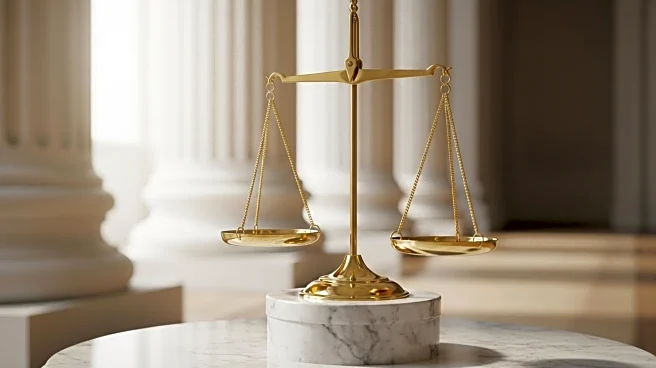What's Happening?
The Supreme Court has agreed to hear arguments on the legality of President Trump's global tariffs, imposed under the International Emergency Economic Powers Act (IEEPA). The tariffs, ranging from 10% to 50%, were applied to numerous trading partners, including China, Mexico, and Canada. A federal appeals court previously ruled that Trump exceeded his authority, as the power to impose taxes and tariffs belongs to Congress. The Supreme Court's decision to review the case marks a significant test of Trump's presidential authority and economic policy, with potential implications for billions in tariffs collected.
Why It's Important?
The Supreme Court's review of Trump's tariffs is crucial for determining the scope of presidential powers under emergency economic statutes. The case could redefine the balance of power between the executive branch and Congress in trade policy, impacting future administrations. If the tariffs are deemed illegal, the U.S. may face financial repercussions, including refunding billions collected from import taxes. The decision could also affect ongoing and future trade negotiations, potentially altering international economic relations and U.S. trade strategy.
What's Next?
The Supreme Court is set to hear arguments in November, with a decision expected to clarify the legal boundaries of presidential authority in trade matters. The outcome may influence the administration's approach to tariffs and trade policy, potentially leading to legislative changes. Stakeholders, including businesses and international partners, are closely monitoring the case, as it could impact trade agreements and economic strategies.
Beyond the Headlines
The case raises broader questions about the use of emergency powers in economic policy and the potential for executive overreach. It highlights the legal and ethical dimensions of trade policy, including the impact on global economic stability and international relations. The decision may prompt discussions on the need for clearer legal frameworks governing presidential powers in trade and economic matters.









